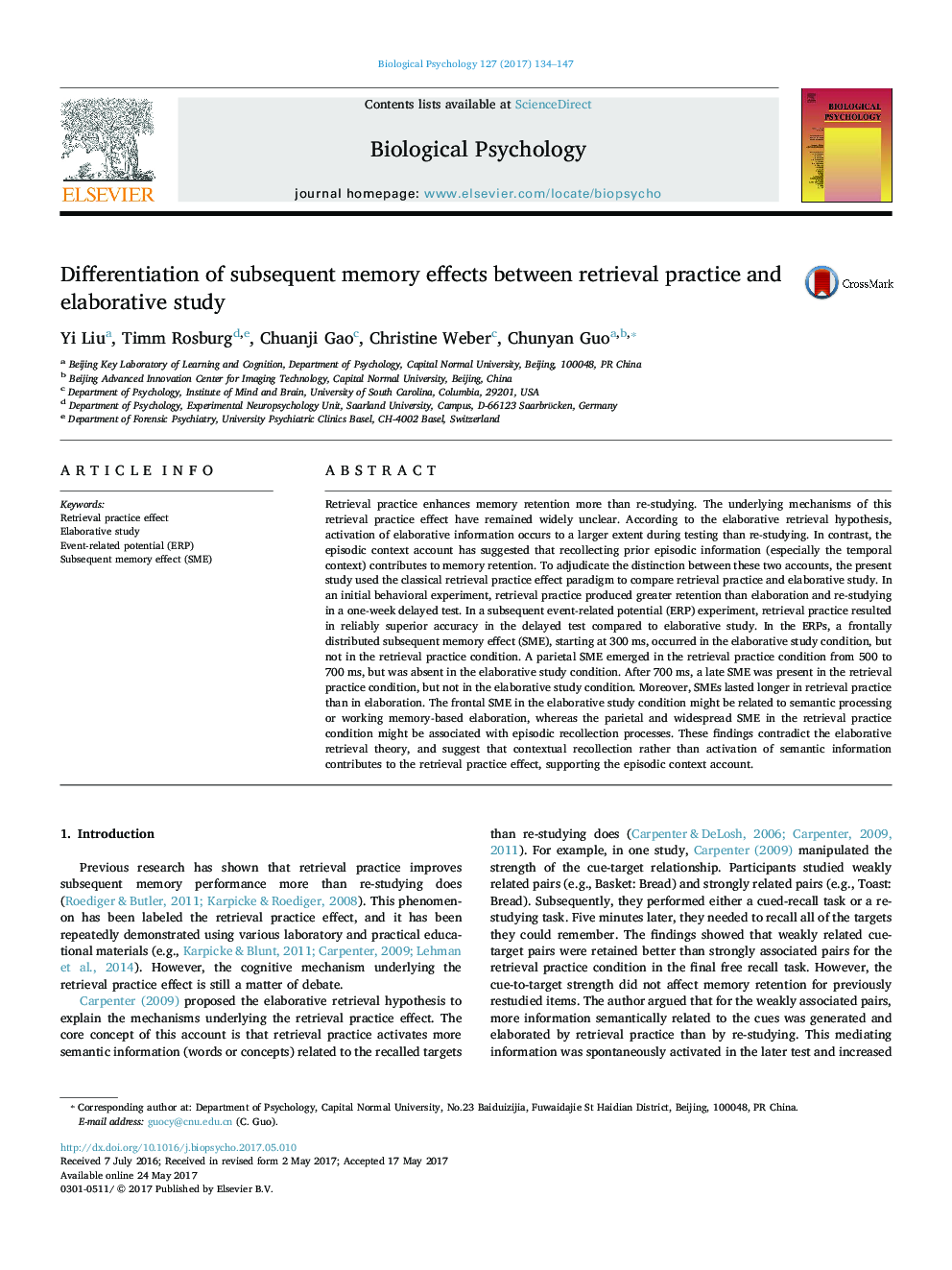| کد مقاله | کد نشریه | سال انتشار | مقاله انگلیسی | نسخه تمام متن |
|---|---|---|---|---|
| 5040486 | 1473847 | 2017 | 14 صفحه PDF | دانلود رایگان |
- Retrieval practice produces better subsequent memory performance than elaboration.
- The subsequent memory effects (SMEs) of retrieval practice and elaboration are distinct.
- Early frontal SMEs occur during elaboration, whereas SMEs are more widely distributed and long-lasting during retrieval practice.
- Contextual recollection, but not elaboration, benefits retrieval practice effect.
- The study supports the episodic context account and contradicts the elaborative retrieval hypothesis.
Retrieval practice enhances memory retention more than re-studying. The underlying mechanisms of this retrieval practice effect have remained widely unclear. According to the elaborative retrieval hypothesis, activation of elaborative information occurs to a larger extent during testing than re-studying. In contrast, the episodic context account has suggested that recollecting prior episodic information (especially the temporal context) contributes to memory retention. To adjudicate the distinction between these two accounts, the present study used the classical retrieval practice effect paradigm to compare retrieval practice and elaborative study. In an initial behavioral experiment, retrieval practice produced greater retention than elaboration and re-studying in a one-week delayed test. In a subsequent event-related potential (ERP) experiment, retrieval practice resulted in reliably superior accuracy in the delayed test compared to elaborative study. In the ERPs, a frontally distributed subsequent memory effect (SME), starting at 300Â ms, occurred in the elaborative study condition, but not in the retrieval practice condition. A parietal SME emerged in the retrieval practice condition from 500 to 700Â ms, but was absent in the elaborative study condition. After 700Â ms, a late SME was present in the retrieval practice condition, but not in the elaborative study condition. Moreover, SMEs lasted longer in retrieval practice than in elaboration. The frontal SME in the elaborative study condition might be related to semantic processing or working memory-based elaboration, whereas the parietal and widespread SME in the retrieval practice condition might be associated with episodic recollection processes. These findings contradict the elaborative retrieval theory, and suggest that contextual recollection rather than activation of semantic information contributes to the retrieval practice effect, supporting the episodic context account.
Journal: Biological Psychology - Volume 127, July 2017, Pages 134-147
